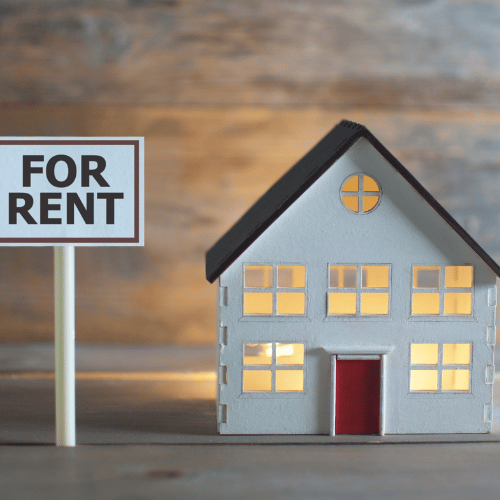- admin
- May 30, 2024
- No Comments
Real Estate & Home Buying
It can be hard to find your way around the real estate market, whether you are buying, selling, or renting a home. It is important to understand how the market works and keep up with current trends in order to make smart decisions. This book gives useful tips and information on how to buy, sell, and rent homes. It also gives an overall picture of the real estate market’s current state.
Overview of the Real Estate Market
As the economy, interest rates, and population changes, among other things, affect the real estate market, it is always moving and changing. Whether you’re a buyer, seller, or renter, knowing about these things can help you make better choices.
Importance of Understanding Real Estate Trends
Trends in real estate can tell you a lot about how the market is doing now and where it’s going in the future. If you know about these trends, you can plan for changes, find opportunities, and lower your risks.


Guide to Buying a Home
Steps to Buying a Home:
- Determine Your Budget: Figure out how much you can spend on a house by looking at your finances initially.
- Get Pre-Approved for a Mortgage: Get pre-approved for a mortgage to find out how much you can borrow and to show sellers you are serious about buying.
- Hire a Real Estate Agent: An experienced real estate agent can help you through the whole process of buying, from finding good homes to negotiating offers.
- Start House Hunting: List the things you must have and the things you would like to have, and then start looking at homes that meet your needs.
- Make an Offer: When you find the right house, make an offer that is competitive based on other sales in the area and the current state of the market.
- Conduct Inspections: Set up a home inspection to find any problems that might exist before you complete the deal.
- Close the Deal: Read over and sign the papers you need to in order to complete the deal and become the owner of your new home.
Financing Your Home Purchase:
When you buy a house, it’s important to know all of your financing options. Look into different types of mortgages, like fixed-rate and adjustable-rate mortgages, and compare terms and interest rates to get the best deal for you.
Tips for First-Time Home Buyers:
- Save for a Down Payment: Plan to put at least 20% of your income toward a down payment. This will help you avoid private mortgage insurance (PMI) and lower your monthly payments.
- Research First-Time Buyer Programs: Look into government programs and incentives that can help lower your costs.
- Budget for Additional Costs: A budget should include extra costs like closing costs, property taxes, insurance, and repairs.


Guide to Selling a Home
Preparing Your Home for Sale
- Declutter and Depersonalize: To make your home more appealing to buyers, get rid of personal items and extra clutter.
- Make Necessary Repairs: Take care of any obvious problems that might turn buyers off or lower the value of your home.
- Enhance Curb Appeal: Spend money on landscaping and other exterior improvements to make a good first impression.
Pricing Your Home Correctly
Setting the right price for your home is important if you want to sell it quickly and get the most money. Use a comparative market analysis (CMA) to find a fair price for your home based on the prices of similar homes in the area.
Marketing Your Home
- Professional Photography: High-quality photos can make your listing look a lot better.
- Online Listings: To reach a lot of people, use well-known real estate websites.
- Open Houses and Showings: You can give people who might be interested in buying your home a chance to see it in person.


Guide to Renting a Home
Finding the Right Rental Property
- Determine Your Budget: Figure out how much rent you can pay, taking into account other costs like insurance and utilities.
- Research Locations: Find neighborhoods that meet your needs in terms of safety, amenities, and commute times by doing research on them.
- Inspect Properties: When you look at possible rentals, you should go see them to see how they are kept and whether they fit your needs.
Understanding Lease Agreements
- Read the Lease Carefully: Before you sign, make sure you understand all of the terms and conditions.
Know Your Rights: Find out what your rights and responsibilities are as a tenant in your area. - Tenant Rights and Responsibilities
Tenants are entitled to a safe and habitable place to live, and it is their duty to keep the property in good shape and pay their rent on time. Knowing these rights and duties can help you stay on good terms with your landlord.


Guide to Renting a Home
Finding the Right Rental Property
- Determine Your Budget: Figure out how much rent you can pay, taking into account other costs like insurance and utilities.
- Research Locations: Find neighborhoods that meet your needs in terms of safety, amenities, and commute times by doing research on them.
- Inspect Properties: When you look at possible rentals, you should go see them to see how they are kept and whether they fit your needs.
Understanding Lease Agreements
- Read the Lease Carefully: Before you sign, make sure you understand all of the terms and conditions.
- Know Your Rights: Find out what your rights and responsibilities are as a tenant in your area.
Tenant Rights and Responsibilities
Tenants are entitled to a safe and habitable place to live, and it is their duty to keep the property in good shape and pay their rent on time. Knowing these rights and duties can help you stay on good terms with your landlord.
Real Estate Market Trends
- Current Market Conditions
The housing market can change because of things like supply and demand, interest rates, and the economy. Knowing what’s going on in the world can help you time your transactions well. - Future Market Predictions
Looking at economic indicators, housing supply, and changes in population is part of figuring out what market trends will happen in the future. Even though it’s hard to say for sure what will happen, knowing about these factors can help. - Impact of Economic Factors
The job market, inflation, and interest rates are all economic factors that have a big effect on the real estate market. Keeping an eye on these signs can help you make smart choices.
Conclusion
It’s important to know the real estate market and follow best practices whether you’re buying, selling, or renting a home. To get around in the real estate market well, you should know about market trends, get professional help, and make decisions based on a lot of research. Be sure of yourself on the journey, and you’ll find the right home or investment for you.







